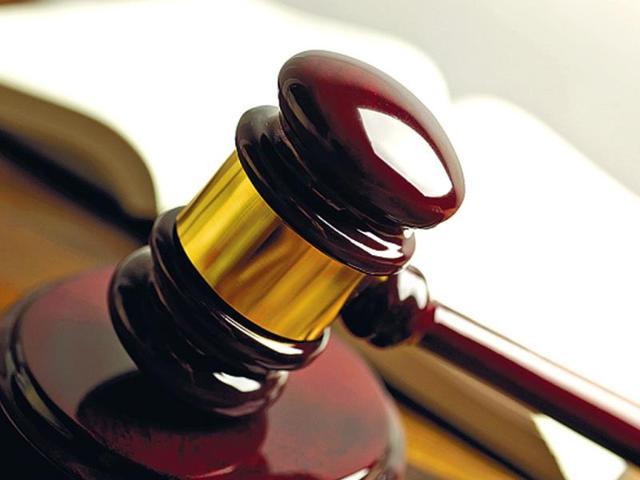Haryana Sikh gurdwaras act challenged in high court
The Haryana legislative assembly’s competence to enact the controversial Haryana Sikh Gurdwaras (Management) Act, 2014, has been challenged in the Punjab and Haryana high court.
The Haryana legislative assembly’s competence to enact the controversial Haryana Sikh Gurdwaras (Management) Act, 2014, has been challenged in the Punjab and Haryana high court.

The petition was filed by advocate Ram Singh Somal, a resident of Kalaur village in Bassi Pathana tehsil of Fatehgarh Sahib district, in the high court registry on Friday. Petitioner’s counsel Harchand Singh Bath informed HT that the high court registry had raised a minor objection on the petition, which would be cleared on Saturday and it would come up for hearing on Monday.
Punjab’s ruling Shiromani Akali Dal (SAD) is involved in a raging dispute with the Congress ruled Haryana government after the formation of the Haryana Sikh Gurdwara Management Committee (HSGMC) to manage Sikh shrines in the neighbouring state. Seeking quashing of the bill that was passed by the Haryana assembly on July 11 came into force after getting the governor’s assent on July 14, the petitioner has submitted that only Parliament has the legislative competence to do so, not the Haryana assembly.
The petitioner has reasoned that with the reorganisation of Punjab through the Punjab Reorganisation Act, 1966, the Shiromani Gurdwara Parbandhak Committee (SGPC) became an inter-state body corporate and any law regarding the incorporation, regulation and winding up of the same could be exclusively passed by Parliament.
Parliament has exclusive powers to make any law with regard to an inter-state body corporation and it could do so “by virtue of entry No 44 of the List-1 (union list) exercising the powers conferred under Article 246 (1) of the Constitution,” the petitioner has submitted.
The act under challenge is not covered under entry No 32 of the state list (List-2), under which the bill was introduced before the Haryana assembly, the petitioner has submitted. Somal has put forward that the central government had amended the Sikh Gurdwaras Act, 1925, from time to time by issuing different notifications and thus the Haryana assembly did not have the competence to exclude the operation of the 1925 act in Haryana, that amounted to repeal of the act in the state. The petitioner has also submitted that under Section 146 of the Sikh Gurdwaras Act, 1925, even the rule-making power has been conferred exclusively on the central government. The petition also reads that the 2014 act has not got the President’s assent, which is not a mere formality but mandatory as per the settled law.
DEFINITION OF SIKH
The petitioner has pointed out the difference in the definition of a Sikh in the two acts. As per the 1925 act, “Sikh means a person who professes the Sikh religion or, in the case of a deceased person, who professed the Sikh religion or was known to be a Sikh during his lifetime.” As per the 2014 act, “Sikh means a person who professes the Sikh religion, believes and follows the teachings of Sri Guru Granth Sahib and the 10 Gurus only and keeps unshorn hair.”
Highlighting the conflict of the 2014 act with the 1925 law, the petitioner has submitted that the former has excluded the high priests of the Darbar Sahib (Amritsar) and the five Takhts, namely Takht Keshgarh Sahib in Anandpur Sahib; Takht Patna Sahib in Patna; Takht Hazur Sahib in Nanded (Maharashtra) and Takht Damdama Sahib in Talwandi Sabo (Bathinda); from its membership.



